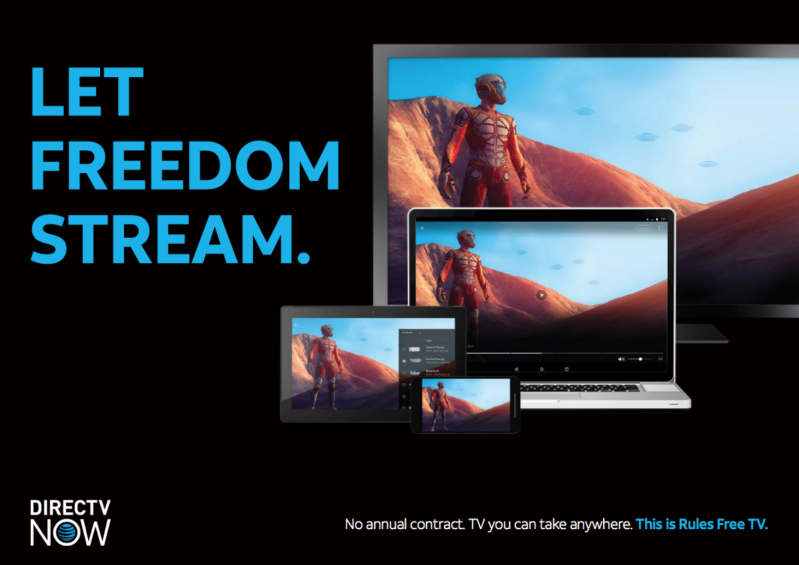
Yesterday, AT&T announced its DirecTV Now streaming service will now be under a zero rating scheme. This means, using the streaming service "won't count against its customers' data caps." It is good news for subscribers as it seems they get more from what they pay for, but the long-term effects can be monstrously scary, as analysts say.
The consequences of a zero rating scheme may not seem obvious, but they are real and with AT&T's large reach and millions of subscribers, the move can be crucial in putting on the wayside on what the internet is supposed to be: open, neutral and free for everyone.
What are the implications of AT&T's zero rating scheme? Here are some of them:
AT&T can be an oligarch in its own right.
Since AT&T owns DirecTV Now, and now DirecTV has access to AT&T's millions of internet subscribers, the company is able to control its subscribers under one roof, in two channels. This means, AT&T is working towards being a company that has a choice to choose its own company over its competitors.
AT&T cracks down on internet competition.
AT&T may seem to be playing fair game, but in reality it is stealthily working its way towards blocking off competition from other networks and online services. For example, since its DirecTV Now is under a zero rating scheme where online use does not count against internet data caps, consumers are led into opting for shows and ads that are under DirecTV Now for practicality's sake. If consumers want to check Netflix, they would think twice since being an AT&T subscriber puts them at a disadvantage of choosing Netflix over DirecTV Now.
But AT&T surely knows how to work its way around, as it now offers "sponsored data" to other companies who would want to be under AT&T's zero rating scheme for an undisclosed fee. This scheme is clearly a bane to small-time websites and blogs who have no way of paying AT&T to get them onboard under the zero rating scheme.
AT&T CEO John Stankey defends the company's decision, saying, "I don't know why anybody would want to take something away from customers that customers like. We think it's a great customer benefit."
However, T.C. Sottek, Managing Editor at The Verge, expresses his disappointment, "The internet was never supposed to feel like buying cable TV, but that's what ISPs (Internet Service Providers) want. They are literally turning internet packages into cable bundles."






